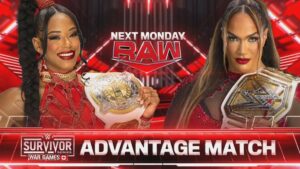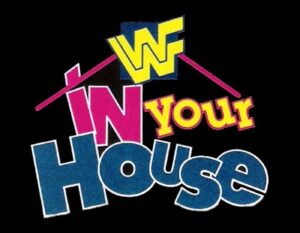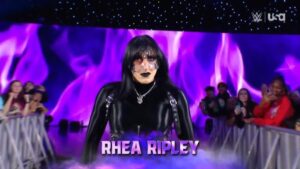Last night, Impact Wrestling put on Slammiversary XVI live from Toronto, Ontario, and during and after the event, critics – from fans to writers – and peers in rings around the world, universally praised the company’s phoenix like rise from near death ashes into one of (if not the) most exciting promotion in North America right now.
Watchin #Slammiversary & its a GREAT show so far! #LAXvsOGz, #TommyDreamerVsEddieEdwards & @Tess_Blanchard are highlights! @IMPACTWRESTLING
— Chris Jericho (@IAmJericho) July 23, 2018
This is Impact Wrestling's coming out party, sixteen years into their existence.
— Sean Ross Sapp of Fightful.com (@SeanRossSapp) July 23, 2018
.@IMPACTWRESTLING with a solid PPV tonight! Everyone’s killin’ it! And the video packages are beyond awesome. 👏🏼👏🏼#Slammiversary #SlamXVI
— Velvet Sky (@VelVelHoller) July 23, 2018
Enjoying the #CanadianFlavored #Slammiversary from @IMPACTWRESTLING on the @FITE App we helped Launch!
Good energy from @CyrusOverHuge & @realjoshmathews
Review coming Wednesday on new, Jim Ross Report SlobberKnocker Audio Show! pic.twitter.com/jDI7Dsnnhd
— Jim Ross (@JRsBBQ) July 23, 2018
https://twitter.com/davidbix/status/1021228061826699265
https://twitter.com/MikeKillam/status/1021241925582622720
But despite an overwhelming resurgence within Impact Wrestling and its place in international wrestling, with one of the best rosters head to toe, fantastic storylines and well paced action, there are still some fans who can’t seem to get past the name change from Total Non-Stop Action (TNA) to the brief rebranding as Global Force Wrestling (GFW) to settling on Impact Wrestling. As if this rebranding is somehow indicative of a company on the decline. And let’s not even get into the amount of Twitter trolls who insist on saying Impact hasn’t been good since the late 2000s, despite admittedly not watching a single episode since 2010. But still, so often we hear the doomsayers who seemingly are more willing to spend the last year of their existence spending time online decrying that “TNA sucks” instead of spending even 120 minutes out of said year to see what everyone else has been glowing about, reeks of an elitism that somehow their opinion – despite being backed up by evidence eight years old – is more valid when they chose not to update the evidence.
https://twitter.com/MikeKillam/status/1021229756103168001
But rebranding promotions – whether it be to update management or ownership changes or simply to distance themselves from a previous regime or era – is not even something Impact Wrestling cornered the market on. In fact, it’s been done and proven more successful in the long run far more often that it failed.
WHAT’S IN NAME: OTHER REBRANDING IN WRESTLING HISTORY
Stampede Wrestling

While most people remember Stu Hart’s legendary Calgary-based promotion under the banner of Stampede Wrestling, that was actually Stu’s fourth name for the brand since forming it in 1948. When Stu began as a promoter, his promotion was named Klondike Wrestling from 1948 to 1951, when he changed it to Big Time Wrestling. Big Time remained the promotion’s name until 1965, when Stu changed it again, to Wildcat Wrestling. It wasn’t until 1967, nearly 20 years after it’s founding, that the promotion gained the Stampede name that everyone remembers.
World Wrestling Entertainment

Before you WWE only fans get to high in the britches, keep in mind that the WWE is currently on their fourth name and third sets of management (even if there is a familial bond throughout). The WWE was founded in 1952 by Jess McMahon (Vince Jr.’s grandfather) and Joseph “Toots” Mondt as Capitol Wrestling, joining under the NWA banner the same year. Sadly, Jess died in 1954, after a near 30 year career as a boxing and wrestling promoter. In his steed, Mondt brought in Jess’ son Vincent J. McMahon (Vince Jr.’s father) and in 1963, they rebranded Capitol Wrestling as the World Wide Wrestling Federation (WWWF). Shortly after the launch of WWWF, McMahon Sr. bought out Mondt’s ownership shares. Around the same time, wrestler Gorilla Monsoon joined the WWWF as one of it’s top heels, acquiring minority ownership in the company. In 1979, McMahon Sr. and Monsoon rebranded the company again, this time to simply the World Wrestling Federation (WWF).

In 1982, Vincent K. McMahon Jr. founded Titan Sports and purchased the ownership shares from his father (who’s health was ailing) and Gorilla Monsoon, becoming sole owner of the company. He would go on to make the WWF the biggest promotion in the world, and would even rebrand the company himself in 2002, to World Wrestling Entertainment (WWE).

In a 15 year span, the company changed names three times themselves – but no one still refers to the WWE as Capitol Wrestling, even when talking disparagingly.
ECW! ECW!

The beloved and legendary promotion Extreme Championship Wrestling (ECW) also experienced multiple name changes throughout the promotions existence. The promotion began in 1989 as Tri-State Wrestling Alliance, owned by Joel Goodhart. He soon brought in a partner named Tod Gordon, who in 1992, bought out Goodhart and renamed the promotion Eastern Championship Wrestling (ECW). Under ECW’s early days, Eddie Gilbert was the booker, but after a falling out with Gordon, he was replaced by a man who had just left WCW – Paul Heyman. When the NWA and WCW parted ways in 1994, the NWA asked ECW to run a tournament to crown the new NWA World Heavyweight Champion. That tournament resulted in Shane Douglas‘ infamous win and immediate announcement he was throwing down the title and renaming it the ECW World Heavyweight Championship, while simultaneously rebranding the company – for the third time in 6 years – to the Extreme moniker it’s best remembered by. And in 1995, Tod Gordon left the promotion, selling it to Paul Heyman, who would run the promotion until its demise in 2001. Three names and three ownership regimes, in only 12 years.
The IWGP Conception
The IWGP Conception – the alliance between New Japan Pro Wrestling (NJPW), Ring of Honor (ROH), Mexico’s CMLL and RevPro UK – may be one of the most exciting coalitions in wrestling today, but even they have their fair share of management changes and reboots.

NJPW was founded in 1972 by Antonio Inoki, but in 2005, Inoki was forced out of his own company when Japanese video game company Yukes purchased his 51.5% ownership shares in New Japan. Yukes took on a dying company, as NJPW’s 90s heights were now extreme lows – Inoki’s emerging obsession with MMA was dulling the product. Yukes began to work hard at changing around NJPW’s fortunes, establishing new stars like Hiroshi Tanahashi, before selling the company in 2012 to current owners, card game company Bushiroad.

Ring of Honor themselves have seen several ownership changes, starting with it’s 2002 founders, Rob Feinstein and Gabe Sapolsky. Following his own controversies, Feinstein sold his shares to Cary Silkin in 2004, who then also bought out Sapolsky in 2008. In 2011, Silkin sold Ring of Honor to Sinclair Broadcasting, who still own the company.

Consejo Mundial de Lucha Libre (CMLL), the world’s oldest existing promotion, was formed in 1933, but not as CMLL. Up until 1991, they were named Empresa Mexicana de Lucha Libre (EMLL), changing to CMLL in an effort to distance themselves from the NWA after breaking their alliance in the late 80s. Much like the WWE, CMLL has been a multi-generational ownership company, founded by Salvador Lutteroth, “the father of lucha libre”. By the 1970s, ownership was transferred to his son, Chavo Lutteroth, and when Chavo retired in the mid-80s, EMLL went into the hands of his nephew, Paco Alonso, who continues to own the company to this day.

Jim Crockett Promotions
But perhaps none are more strikingly similar than one of the more heralded promotions of the entire wrestling history.

Jim Crockett Sr. began Jim Crockett Promotions (JCP) in 1931 and until 1952, ran his wrestling shows under a multitude of banners – Championship Wrestling, All Star Wrestling and East Coast Wrestling being early monikers used in local ads. When he joined the National Wrestling Alliance (NWA) in 1952, he settled on Mid Atlantic Championship Wrestling as his territorial name. When Crockett passed away in 1973, his son Jim Crockett Jr. assumed control of the territory. Just like Vince McMahon did in the mid-80s, during the same time, Jim Jr. began to acquire other NWA territories, like Mid-South, Championship Wrestling From Florida, St. Louis Wrestling Club, NWA Central States and others, rebranding his entire outfit as the NWA (despite being a separate entity from the actual governing NWA).

In 1988, facing bankruptcy after battling the WWF for several years, Crockett sold JCP to Ted Turner at TBS Sports. Much like Impact’s brief tenure as GFW, initially when Turner acquired Crockett’s “NWA”, he rebranded it as the Universal Wrestling Corporation (UWC) before changing the promotion to share the same name as it’s flagship show – World Championship Wrestling (WCW). Sound familiar?

From 1988-1989, WCW went through a massive change in ownership, shedding it’s familiar three letter name, briefly changing it to something goofy, before changing it’s name to co-brand with it’s flagship show. But I doubt you’ll ever hear people refer to WCW as “NWA-UWC or whatever they were called” on Twitter.
What’s In a Name: TNA is Dead, Long Live Impact Wrestling
Wrestling has always and will always be a subjective matter. All wrestling is fun and it caters to millions of people around the world, striking chords with people for different reasons. Some love deathmatches and some love comedic wrestling. Some prefer technical submission matches, others high flying aerialists. If you genuinely have given Impact Wrestling a chance and still find it isn’t your cup of tea, that’s fine. But better spend your energies finding promotions you do find enjoyable to watch – and promote with the same vigor you spend tearing down ones you dislike.
And for goodness sake, stop using ridiculous excuses like “changing names and managements” as a reason why a company can’t be any good. Because most of the best ones have gone through similar situations and thrived.






